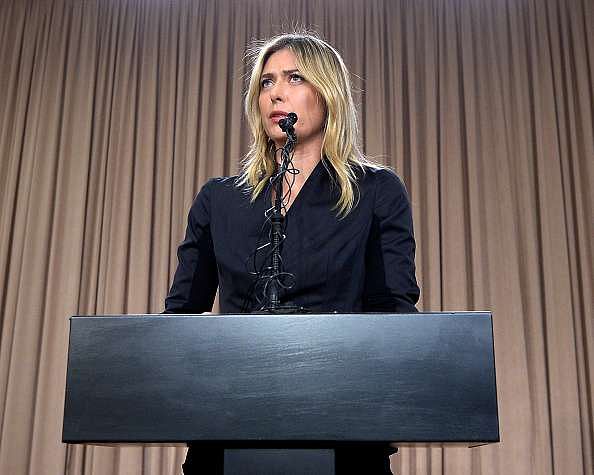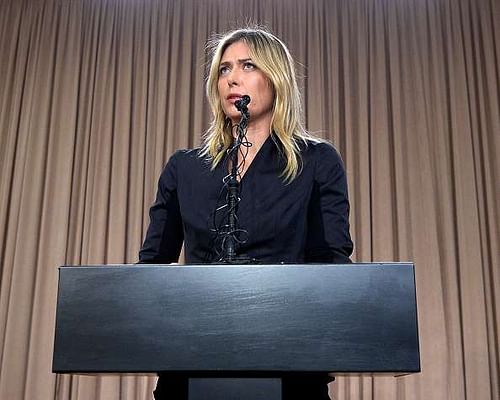
Despite WADA's relaxation of meldonium ban, Sharapova will still have to face ITF tribunal

Moscow, April 13 (IANS): A doping case involving Russia's tennis star Maria Sharapova will be considered by the tribunal of the International Tennis Federation (ITF) despite the recent ban on the drug Meldonium, the governing body said on Wednesday.
Earlier in the day, the World Anti-Doping Agency (WADA) announced that the concentration of less than one microgram of Meldonium in the body system of an athlete, whose doping tests were conducted before March 1, was acceptable and the athlete at the issue was not a subject to any sanctions whatsoever, reports Tass.
Asked about the concentration of Meldonium discovered in the doping sample of Sharapova, the ITF said it was not able "to discuss this case" and "to wait for the tribunal decision".
Early last month Sharapova told a news conference in Los Angeles that recent doping tests revealed the presence of performance enhancing drug Meldonium in her body system.
Shamil Tarpishchev, the president of the Russian Tennis Federation (RTF), said two weeks ago that the hearings of the ITF tribunal into Sharapova's case could be postponed until June. But Tarpishchev is still hopeful that the world's highest-earning female athlete will be among the contenders at the Rio Olympics in August this year.
In line with the ITF regulations, initial hearings on an alleged doping abuse by a tennis player should take place within three weeks after the results of the doping tests were announced. In case with Sharapova the hearings should have begun on March 23.
The drug was included in the list of preparations banned by WADA from January 1, 2016. The presence of Meldonium substance in the athlete's blood during and between competitions is a violation of anti-doping rules. The substance belongs to S4 class on the WADA blacklist (hormones and metabolic modulators).
Meldonium is a cardiovascular preparation freely available for purchase at pharmacies across Russia without doctor's prescription.
According to WADA's data, a total of some 140 doping samples worldwide tested positive for Meldonium, including up to 30 Russian athletes. Among them are tennis star Maria Sharapova, Olympic medallist in swimming Yulia Efimova and Olympic medallist in speed skating Pavel Kulizhnikov.
Russian sports was in the centre of doping-related scandals since the fall of 2014. Since early February control over doping abuse in Russian sports has been exercised by RUSADA only under the supervision of the British anti-doping agency (UKAD).
Last week, Russian sports minister Vitaly Mutko announced that UKAD was taking up to 200 doping samples from Russian athletes each month.